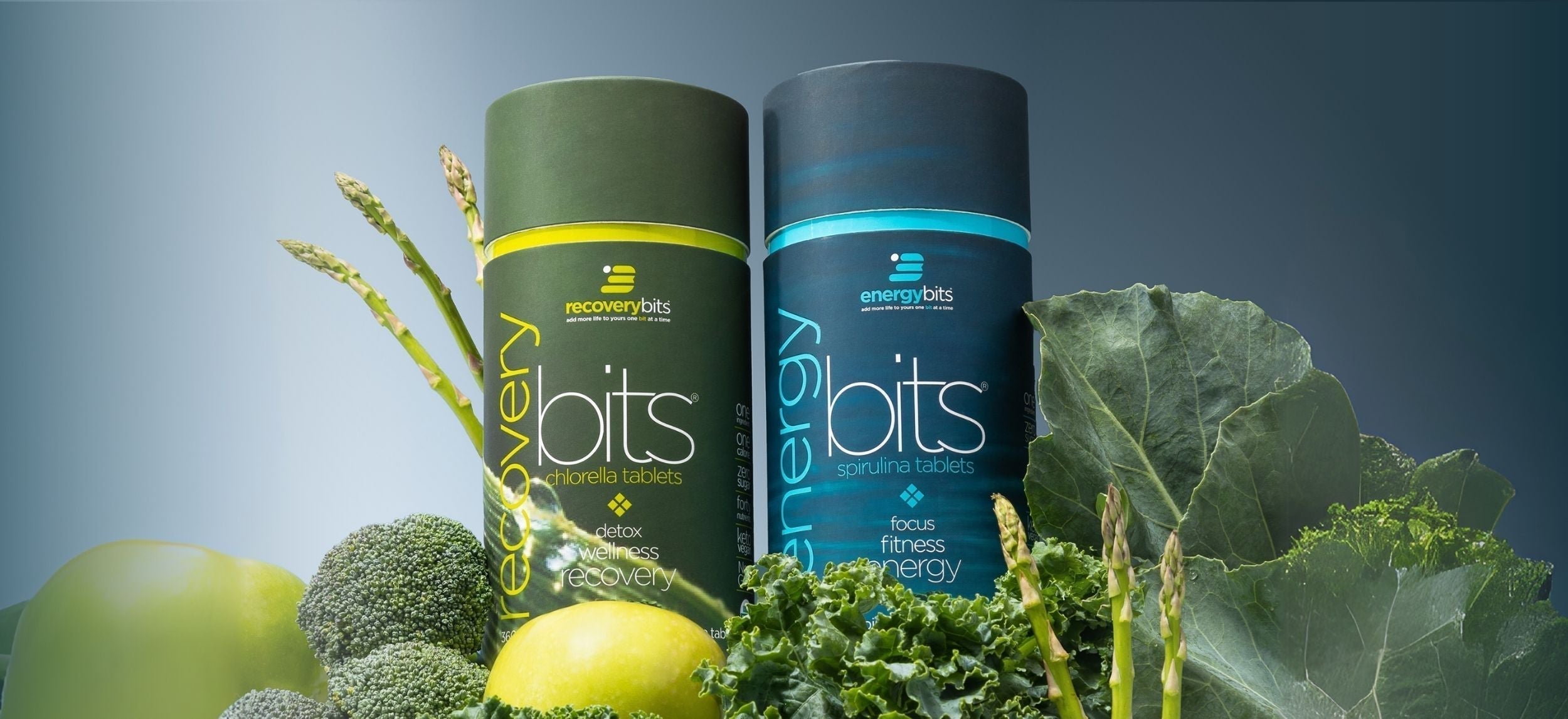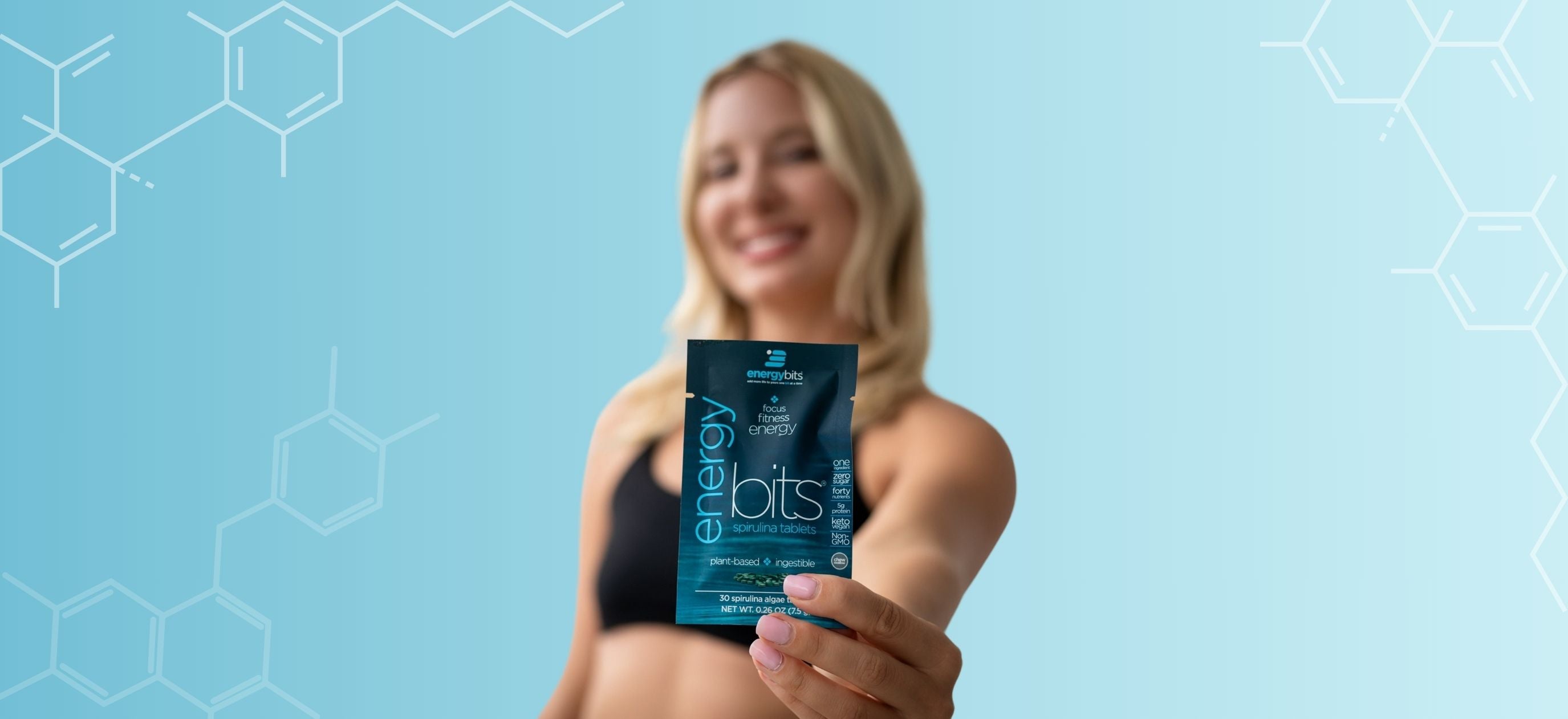
Women’s Health, The Miracle of Life, and Algae
, by Catharine Arnston, 7 min reading time

, by Catharine Arnston, 7 min reading time
Pregnancy and parenthood requires women to play offense and defense, all at once. Protecting the health of a growing fetus and giving it the best chance of surviving when born is paramount when pregnant.
Pregnant women and mothers are warriors.
Pregnancy and parenthood requires women to play offense and defense, all at once. Protecting the health of a growing fetus and giving it the best chance of surviving when born is paramount when pregnant.
Women receive all sorts of health advice from well-meaning family, friends, doctors, media…well, everyone– from the moment they conceive. It’s so much to remember and learn that it can make a person’s head spin!
So, why add algae to the growing pile of knowledge concerning women’s health?
Because spirulina and chlorella are some of the most beneficial sources of nutrition one can consume during–and after– pregnancy.
Especially in these unprecedented times during the global Coronavirus pandemic, it has never been more important to combat harmful environmental factors like a virus while pregnant, and algae is a scientifically proven first line of defense against viral infections <1>.
During pregnancy, what affects the mother, affects the child. That fact alone can be daunting when choosing what to add and what to cut out during pregnancy and beyond.
Many women are advised to make lifestyle and dietary changes throughout pregnancy and breastfeeding.
In today’s world, many foods are saturated in unhealthy fats, artificial chemicals and preservatives, and fillers that are already damaging to the human body, let alone a fetus.

Pregnant women need micro and macronutrients to achieve optimal health and weight. It is proven that if you make several positive changes to your diet, it drastically improves the quality of your gestation period. Without them, studies have shown there are several major health risks to a child when born <2>.
Not to mention, equally as important–how a pregnant woman is feeling and adapting during her experience, perhaps one of the most life-changing transitions of a woman’s life.
In addition to changing her diet for the sake of the fetus, a woman also can experience intense changes in appetite, food preferences, and physical distress such as nausea and pain, all of which cause changes to diet and lifestyle <3>.
Let’s look at how easy it is during this challenging transition to reap maximum nutritional benefits by adding algae like spirulina and chlorella to a diet–and more importantly, why you should.
One of the most important properties of spirulina is its studied ability to regulate oxidase activity that causes preeclampsia.
Preeclampsia is a common but serious condition. It affects 3-5% of women and is characterized by high blood pressure, edema, protein in the urine, and organ damage <4>. It can lead to an increased chance of premature birth and is the number one cause of maternal and fetal death in countries with less access to resources <4>.
Preeclampsia occurs when pregnancy alters hormone levels, causing oxidative stress. Negative oxidation stress is when antioxidants and free radicals in the body are imbalanced, causing damage to DNA, proteins in the body, and more <5>.
This is certainly stressful to think about, so knowing the best way to avoid this condition is important. Spirulina has been advocated for by research as a strong line of defense against preeclampsia, due to the fact that it can inhibit NADPH oxidase, which is thought to be responsible for oxidative stress <6>.
Simply put: take spirulina in preparation for becoming pregnant and during pregnancy to help lower the likelihood of this condition!
It is widely known that protein is essential for fetal growth and health, as well as for pregnant women to remain strong and more easily able to carry a child to term.
However, popular sources of protein, such as red fatty meats, can create serious issues with blood pressure, especially during gestation.
Spirulina is a plant-based protein–a healthy solution to getting this vital macronutrient <7>!

Did you know that spirulina consists of approximately 64% protein <8> and is low in sodium? It is also a great source of iron, which helps with red blood count. This can help in countering common conditions such as anemia.
We normally associate Omega-3 and Omega-6, two essential fatty acids (the good kind of fat) with fish. But move over salmon–algae has taken your spot! Or at least supplemented it as an amazing source of fatty acids.
This macronutrient is vital for fetal neurodevelopment and birth weight in addition to a healthy period of gestation. It is found that the fastest rate of neural and retinal growth happens in the third trimester, so it is especially important to add this to a healthy diet at this stage of pregnancy <9>.
When pregnant, it is strongly advised to cut out popular dishes with raw fish like sushi, fatty acid intake can be easily substituted with algae. In addition, if you are a vegetarian and cannot take fish oil, algae is your best bet <10>!
Finally, when thinking about after pregnancy, algae is a super source of vital nutrients post-childbirth for mother and infant.
Even people in countries with high access to resources are nutrient-deficient, and it’s a serious issue, including for nursing mothers. In fact research proves that the first three years of a child’s life, from the moment of conception, are the most critical in absorbing nutrients vital in preventing common diseases in adults <11>.
That’s a lot of pressure to place on a nursing mother!
Taking algae while in the breastfeeding phase is the best way to absorb these nutrients and thus pass them onto a nursing infant. Algae provides all nutrients discussed above, in addition to antioxidants, vitamins, and folic acid <12>!
Beyond breastfeeding and infanthood, algae is a perfect green source of nutrients to add into baby food…so incorporating it into your family’s lifestyle gets a “green light” from scientific research <13>!

Every person should make their own decisions concerning their body during pregnancy and what is best for their child. Still, we believe in providing this vital information so you can make the best-informed decision for yourself.
In Western culture, algae is just now becoming recognized for its nutrient density. It has been used in Eastern cultures for centuries, endorsed by the United Nations and WHO for fifty years and NASA feeds it to the astronauts and plans to grow it in on space stations <13>!
So why wait? Adding spirulina and chlorella to your daily diet is a simple thing to do. Just swallow or chew a handful each day or add them to smoothies or trail mix or whatever. Give your body clean green energy loaded with all the vitamins and minerals you need to achieve your best quality of life. And everyone deserves that.
Whether you are a mom, grand-mom, mom-to-be or someone in between, we hope you will show yourself some self-love with algae.


